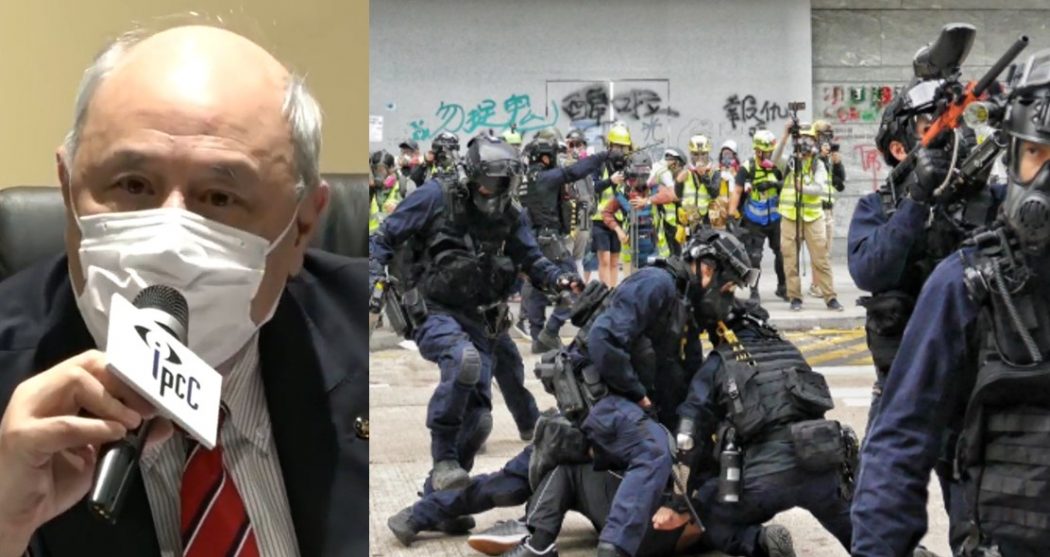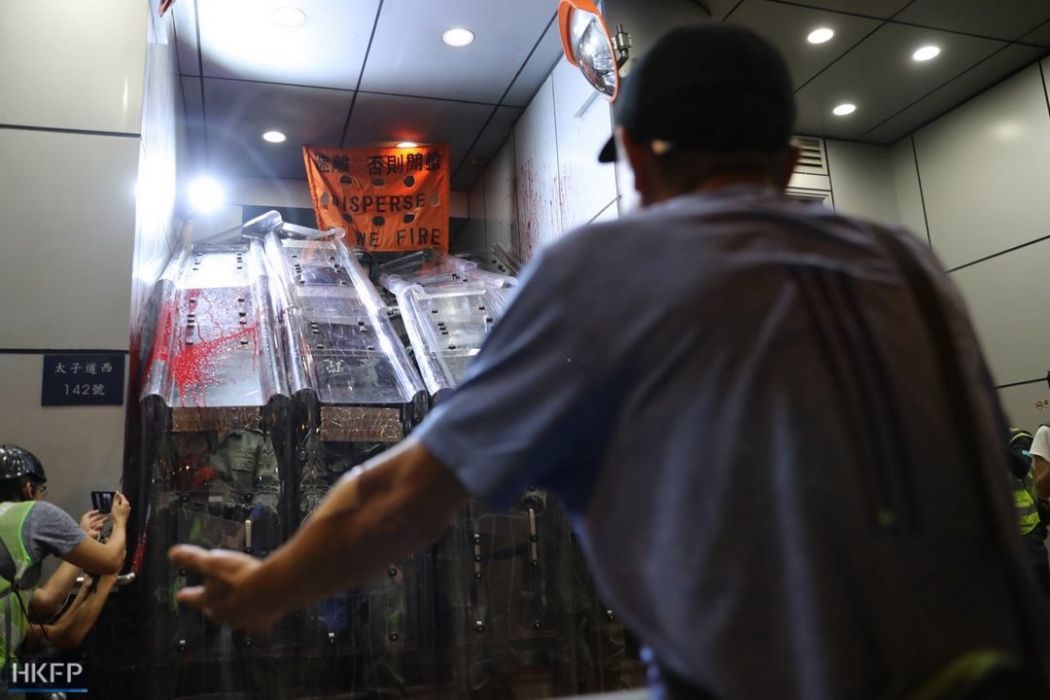The end of May is marked with widespread anti-authoritarian protests in Hong Kong and in the U.S., particularly in the Twin Cities and Louisville, where two unarmed black people—George Floyd and Breonna Taylor—were murdered by white police officers.
George Floyd’s murder mirrored what took place in Hong Kong just a few weeks ago: on May 10, three police officers subdued a South Asian man on the floor, and knelt on his neck. The man was unconscious and had no pulse by the time paramedics arrived. A racial minority in a largely homogenous society, the South Asian community in Hong Kong has historically been stigmatized and marginalized. Similar to the Black community in the U.S., South Asians in Hong Kong also frequently encounter racial profiling intense policing in their everyday life.
While Derek Chauvin, the Minneapolis officer who knelt on Floyd’s neck, was arrested four days after the incident amidst widespread protest, the Hong Kong officers in question were never sanctioned. Without conducting any further investigation, the Hong Kong Police Commissioner cleared the officers of any wrongdoing. This case in Hong Kong was one of many examples of police violence that has gone unchecked, especially during the Anti-Extradition Movement. To add fuel to fire, earlier in May, tasked with investigating complaints of police violence and the excessive use of force during the Anti-extradition Movement, Hong Kong’s Independent Police Complaints Council released a 999-page report that mostly exonerates the Police Force of wrongdoing, partly by shifting blame to protesters.

As protesters in Hong Kong continue to confront governmental suppression and police violence, at times calling for the entire police force to be disbanded (解散警隊), activists across major cities in the U.S. are calling for justice against systemic racial violence committed by the police against the Black community. Reminiscent of what has been occurring in Hong Kong since last June, Minneapolis police, donning anti-riot gear, has been firing hundreds of teargas canisters and rubber bullets to disperse protesters. On social media, journalists and activists have begun to draw parallels between the protests in Hong Kong and in Minneapolis. Hong Kong democratic lawmaker Lo Kin-Hei re-tweeted the arrest of Black CNN correspondent Omar Jimenez in Minneapolis, opining: “Seems like Minneapolis police doesn’t want Hong Kong police to outshine them.”
While Beijing and the Hong Kong government have repeatedly labelled protesters as rioters to discredit the movement, similar rhetorical strategies are now being used by conservative news media and the U.S. government to justify the use of state violence, including military suppression, to end the protests triggered by George Floyd’s murder. New York-based Hong Kong writer Wilfred Chan likened the White House’s threat to mobilize the military to shoot Minneapolis protesters to the 1989 Tiananmen Massacre in China, in which the Chinese Communist Party deployed hundreds of thousands of troops to suppress the student-led protest, killing hundreds, perhaps thousands.

This year, Hong Kong’s June 4th Museum has put together an exhibit that illuminates the connections between the Tiananmen student protest and the current Anti-Extradition Movement. Echoing the more militant camp of protesters in Hong Kong, Black U.S. writer Rafi D’Angelo rebukes criticism against the Minneapolis protesters, “People are ANGRY. They have a right to be angry.” Rather than villainizing protesters for causing property damage to large corporations, D’Angelo asked the public to interrogate the root causes of the protesters’ anger, and to actively work on improving the sociopolitical conditions for marginalized people. Instead of fighting against the protesters whose lives have been endangered by state power, D’Angelo urged the public to “fight for all those things that would make rioting less likely.” While D’Angelo was writing about racial injustice and police brutality in the U.S., his words mirror the sentiments of many pro-democracy Hong Kong activists and protesters who have, in frustration, anger, and defiance, vandalized storefronts owned by corporations that support Beijing.
Given the many similarities between the Hong Kong Anti-Extradition Movement and the U.S.’s George Floyd protest, activists in the U.S. have been drawing on tactics and slogans deployed by Hong Kong protesters during the Anti-Extradition Movement. Minneapolis protesters have been chanting “Be Water.” Meanwhile, activists from Hong Kong and the U.S. are now sharing on Twitter footage of Hong Kong protesters putting out teargas with traffic cones on Twitter, alongside guerilla tactics and legal advice that have been proven effective during Hong Kong’s almost year-long protests. Activists from Hong Kong and the U.S. have been tweeting slogans and graffiti from the Anti-Extradition Movement that resonated with the Minneapolis George Floyd protest. The scrawl left by Hong Kong protesters in the Legislative Council on July 1, 2019 rings particularly true to both movements: “It was you who taught me that peaceful marches are useless.”
These connections illustrate the coalitional potential between Hong Kong protesters and Black activists in the U.S. as they both embody non-hierarchical grassroots organizing against state violence and oppression. While these two social movements stem from distinct cultural and historical contexts and unique circumstances of oppression, they coalesce through their shared resistance against police brutality and unchecked authority to yield force as sanctioned by the state. By cultivating transnational solidarity with one another, these grassroots movement can become more powerful and sustainable in the face of overwhelming state power. As Hongkongers tweet, chant, and urge others to “Stand with Hong Kong,” we must also stand in solidarity those protesting in Minneapolis, and all others who share the same struggle against state violence—only then can we co-create an equitable and humanist collective political future.
